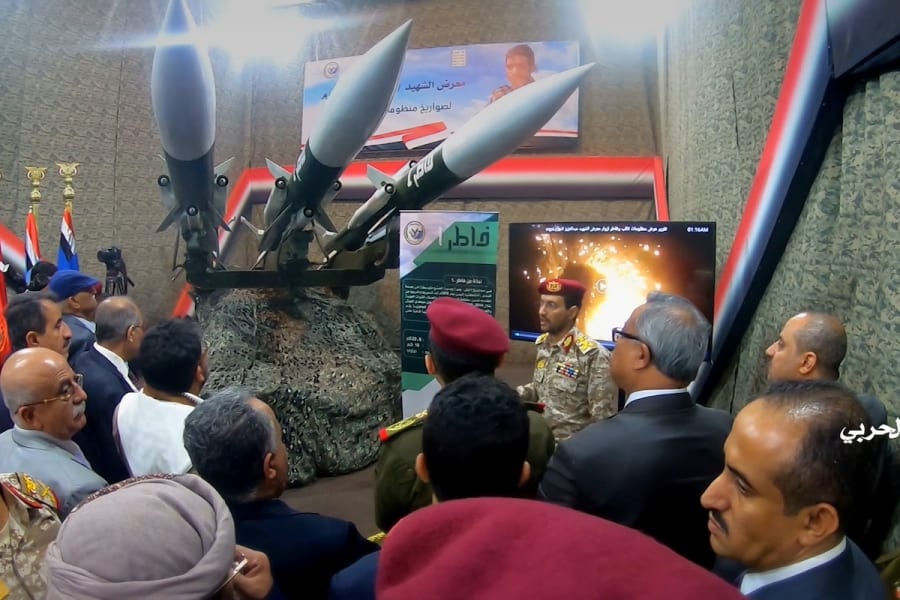First Houthi missile penetrates Israeli airspace in Eilat, IDF probing incident

The Iranian-backed Houthi terror militia group from Yemen successfully fired a missile that penetrated Israeli airspace over Eilat for the first time, the Israeli military announced on Tuesday night.
Israel Defense Forces reported that the missile was fired from the Red Sea region and landed in an open space north of Israel's southernmost city of Eilat, a popular year-round resort for local and international tourists.
While the IDF did not explicitly identify the Houthis as the perpetrator, the incident bears the hallmark of previous Houthi attempts to attack Israel with ballistic missiles and drones from the Red Sea.
Following the devastating Hamas terror attack against Israel on Oct. 7, the Iranian-backed Houthis began attacking Israel and international shipping trade vessels in the Red Sea in solidarity with the terror organization Hamas and the Gaza Strip.
Israel has one of the world’s most advanced multi-layered aerial defense systems, capable of intercepting both short-range and long-range missiles. However, no system is foolproof. While the Houthi missile did not result in any human injuries or material damage, there was the potential for a far worse outcome.
The IDF is probing the incident to find out why the missile was not intercepted and neutralized by the nation's aerial defense systems.
In late December, the Israeli Air Force (IAF) shot down a “hostile aerial target” over the Red Sea that turned out to be a drone launch by the Houthis toward Eilat.
At the time, IDF Spokesman Brig.-Gen. Daniel Hagari condemned the incident, saying: “This is an act that is carried out under Iranian directives.”
Mark Dubowitz, CEO of the Foundation for Defense of Democracies (FDD) analyzed the Houthi attack within the wider context of Iranian-directed terror attacks carried out by Tehran’s various regional terror proxies.
“The regime in Iran will escalate its violence through its Houthi, Hamas, Hezbollah, Palestinian Islamic Jihad, and Kataib Hezbollah proxies until it pays a direct price. It is happy to fight to the last dead Yemenite, Palestinian, Lebanese, Syrian, and Iraqi. But it will back down if the United States uses direct force against the regime and its assets,” Dubowitz assessed.
In late February, Israel's Arrow missile defense system shot down a ballistic missile launched by the Houthis and headed for Eilat.
The Israeli army stressed that the hostile aerial object was neutralized before it entered Israeli airspace.
“The target did not cross into Israeli territory and did not pose a threat to civilians,” the IDF stated.
While the Houthi rebels have repeatedly tried to attack the Jewish state, its impact has been minimal due to the vast geographic distance between Yemen and Israel, with its robust aerial defense systems.
Consequently, in recent months, the Houthis have concentrated their efforts on targeting international maritime traffic in the Red Sea, one of the world’s most important commercial waterways.
Earlier in March, a top Houthi commander warned Israel and the United States that there were “more surprises” on the way, without elaborating.

The All Israel News Staff is a team of journalists in Israel.












